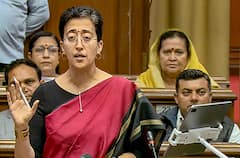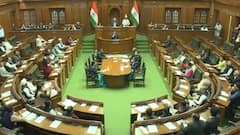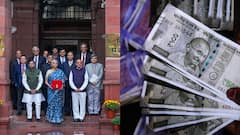Union Budget 2022: Banks Demand Reduction In Tenure Of Fixed Deposit For Tax Benefits
Banks have cited that the tax-saver fixed deposit has become less attractive and if the lock-in period is reduced, this would make the product more attractive and provide more funds to the banks

New Delhi: As the finance ministry prepares for the upcoming Budget, banks have proposed lowering fixed deposit (FD) tenure to three years for availing tax benefits in line with mutual fund products like equity-linked savings scheme (ELSS).
What are banks demanding in Budget 2022-23?
Now, customers are availing a tax break on five-year tax-saving FD schemes. One can claim an income tax (I-T) deduction by investing money in a five-year FD scheme under Section 80C of the Income Tax Act, 1961. Section 80C is a wide bracket with a ceiling of Rs 1.50 lakh.
ALSO READ: Union Budget 2022: What Is Economic Survey And Why Is It Important? All You Need To Know
However, the bankers are asking for the lock-in period to be reduced to three years from the existing five years, according to the Budget proposal from the Indian Banks' Association (IBA), according to news agency PTI.
The banks are demanding for reduction in lock-in period to make FD more attractive.
"As compared to other financial products (such as ELSS) available in the market, the tax-saver fixed deposit (FD) has become less attractive and if the lock-in period is reduced, this would make the product more attractive and provide more funds to the banks," IBA said in a pre-Budget proposal submitted to the government.
Banks are also seeking special rebates or additional depreciation for expenditure made on financial inclusion activities and promoting digital banking, among other activities.
Banks do a lot of activities for promoting the weaker sector, promoting digital banking and for implementing various schemes of the government under financial inclusion, the association added.
"By making expenditure of IT, banks give benefits to masses i.e. ease of doing business, digital banking, etc. Therefore, some special incentives in the form of the special tax rebate or deduction or additional depreciation (say 125 per cent) over and above the actual capital expenditure made on such activities may be provided," it said.
Apart from this, the banks are looking at a special dispute resolution mechanism for faster disposal of cases related to taxation. Banks' appeals involve substantial amounts but these are treated on parity with appeals involving small amounts, it said.
It added that huge amounts are involved entailing loss of interest to either party, both of whom are largely two arms of the government. "Appeals between banks and the government department require to be heard faster.
"Special dispute resolution mechanism, similar to the Committee on Disputes, set up with strict timelines for completion of the appeal process is required to reduce litigations between the tax department and the banks," it said.
ALSO READ | Union Budget 2022: Indian Auto Industry Awaits Booster Dose
Trending News
Top Headlines





































